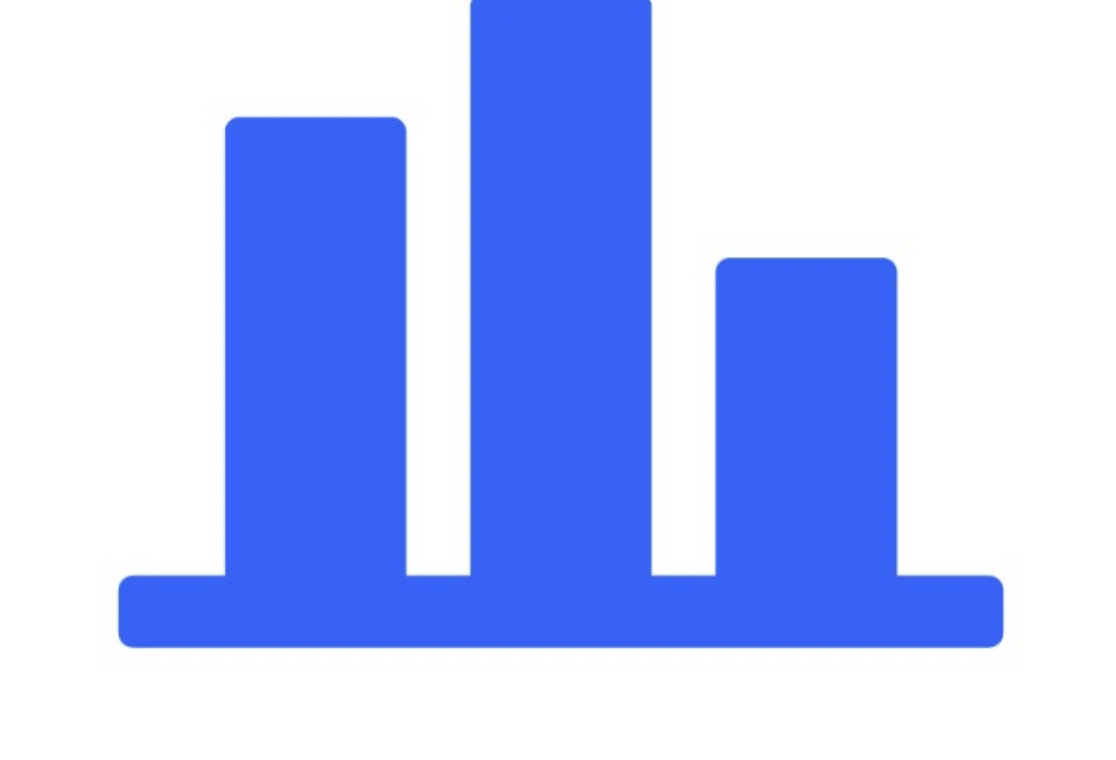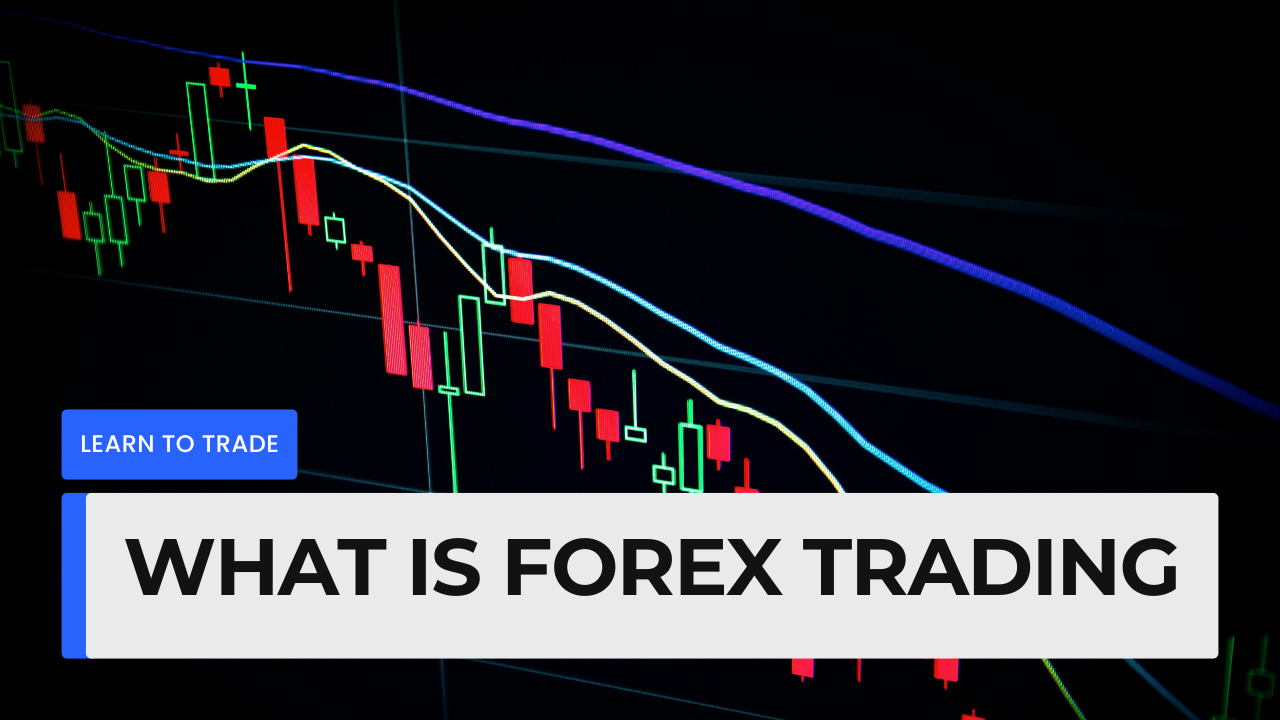Forex, short for Foreign Exchange, is the global market where people trade one currency for another. It’s huge — in fact, it’s the largest financial market in the world, with more than $7.5 trillion traded every day (according to the Bank for International Settlements).
Instead of owning physical money, traders simply speculate on whether one currency will go up or down against another.
For example:
If you think the Euro (EUR) will get stronger than the U.S. Dollar (USD), you’d buy the pair EUR/USD.
If the Euro’s price rises, you make a profit when you sell it back.
It’s that simple in concept — though, like any skill, it takes time to understand how it really works.
Why Forex Matters
The forex market connects the entire world. Every time a business imports goods, a traveler exchanges money, or a bank transfers funds internationally — forex is involved.
Understanding forex helps you see how global events, interest rates, and economies affect currency values.
That’s why so many people study forex — not just to trade, but to understand how the world of money really moves.
At Holo Forex, we believe knowledge comes before trading. Our goal is to help you learn the “why” and “how” of forex before ever risking your money.
Who Trades in the Forex Market?
Forex isn’t just for banks or big investors anymore — it’s open to almost everyone. Here are the main players:
1. Central Banks and Governments
Central banks and national governments are major participants in the foreign exchange market, as they manage a country’s currency value, money supply, and interest rates. Their actions directly influence exchange rates and global economic stability. For instance, when the U.S. Federal Reserve (the Fed) raises interest rates, it often leads to a stronger U.S. dollar because higher rates attract more foreign investors seeking better returns on U.S. assets. Conversely, lowering interest rates can weaken the currency, making exports more competitive. Similarly, governments and central banks may intervene in the forex market to stabilize their currencies — for example, by buying or selling large amounts of foreign currency reserves. These policies and interventions play a vital role in maintaining economic growth, controlling inflation, and promoting financial stability in both domestic and international markets.
2. Commercial Banks and Big Companies
Commercial banks and large corporations play a crucial role in the foreign exchange (forex) market. These businesses often engage in currency exchange to facilitate international trade and investment. For example, when a Japanese company imports raw materials or machinery from the United States, it must pay its American suppliers in U.S. dollars rather than Japanese yen. To complete this transaction, the company approaches a commercial bank to exchange yen for dollars. Similarly, multinational corporations convert currencies to pay overseas employees, invest in foreign subsidiaries, or manage international revenues. Because these transactions involve large sums of money, commercial banks handle them through the interbank market, where exchange rates are negotiated based on global supply and demand. The activities of these institutions contribute significantly to the daily trading volume of the global forex market, influencing currency prices and international economic stability.
3. Investment Funds
Investment funds, including hedge funds, mutual funds, and asset management firms, are significant players in the foreign exchange market. These institutions trade large volumes of currencies to maximize returns for their investors and to manage the risks associated with international investments. Hedge funds, for example, often speculate on short-term currency movements — buying or selling currencies based on economic forecasts, political events, or interest rate changes. Asset managers, on the other hand, may exchange currencies to balance their global investment portfolios or to hedge against unfavorable exchange rate fluctuations. Because of the vast amounts of money they control, the trading activities of investment funds can have a noticeable impact on market liquidity and exchange rate trends worldwide.
4. Retail Traders
Retail traders are individual investors who participate in the foreign exchange market through online trading platforms or brokers. Unlike large institutions, retail traders typically trade smaller amounts of money, but collectively they make up a growing share of daily forex transactions. These traders buy and sell currencies to profit from changes in exchange rates — for example, purchasing euros when they expect the euro to rise in value against the U.S. dollar. Many retail traders use leverage, which allows them to control larger positions with a relatively small amount of capital, increasing both potential profits and risks. Advancements in technology and easy access to trading apps have made forex trading more accessible to individuals worldwide, enabling them to participate in a market once dominated by banks and large financial institutions.
How the Forex Market Works
The foreign exchange (forex) market operates very differently from traditional financial markets such as stock exchanges. While stock markets open and close at specific times, the forex market functions continuously — 24 hours a day, five days a week. This nonstop trading is possible because financial centers around the world take turns driving market activity. As one major market closes, another opens — moving seamlessly from Sydney to Tokyo, London, and New York — keeping global currency trading active around the clock.
The Four Main Trading Sessions
- Sydney Session – Starts the week
- Tokyo Session – Covers Asia-Pacific
- London Session – The busiest and most liquid
- New York Session – Overlaps with London, bringing high volatility
Because of this unique global structure, the forex market never truly sleeps. There is always trading activity happening somewhere in the world — and that constant motion is what makes forex one of the most dynamic, exciting, and accessible financial markets on Earth.
Understanding Currency Pairs
Currencies are always traded in pairs — because one currency’s value is measured against another.
Example:
EUR/USD = 1.1000 → This means 1 Euro = 1.10 U.S. Dollars
- The first currency (EUR) is the “base”
- The second (USD) is the “quote”
If you buy EUR/USD, you’re buying Euros and selling Dollars at the same time.
Why Forex Prices Move
Currency prices are always changing — sometimes fast, sometimes slow.
They move because of things happening in the real world, like:
- Changes in interest rates
- Inflation and economic growth
- Political events or global conflicts
- Market news and trader expectations
Quick Example:
If the U.S. economy reports strong job numbers, the USD might rise because traders expect higher interest rates.
If there’s political uncertainty in the U.K., the GBP might fall as investors look for safer options.
Why So Many People Learn Forex
Forex trading is popular for a few big reasons:
✅ It’s global and open 24/5 — you can learn or trade anytime
✅ You don’t need a huge amount to start learning
✅ It’s flexible — you can learn part-time
✅ There’s opportunity in both directions — prices can move up or down
✅ It helps you understand the world economy — not just markets
Many people start learning forex not just to trade, but to build financial awareness and gain skills that apply to other areas of investing.
How to Start Learning Forex
The best way to begin isn’t by trading — it’s by learning.
At Holo Forex, we focus on education, analysis, and mindset — the real foundations of success.
Before you ever open a live account, it’s smart to:
- Learn the basics of how forex works
- Understand risk and money management
- Practice reading charts and trends
- Train your emotions and discipline
Once you have the knowledge, you’ll make decisions based on skill — not luck.
Key Takeaways
- Forex trading means buying one currency while selling another.
- It’s the largest financial market in the world, open 24 hours a day.
- Prices move because of economic, political, and emotional factors.
- Anyone can learn forex with the right guidance.
- Holo Forex helps you build the knowledge, mindset, and confidence to understand this market clearly.
Final Thoughts
The foreign exchange (forex) market is more than just a trading arena — it’s the heartbeat of global finance. Every economic event, policy change, and business transaction across borders connects through this dynamic network. Whether you’re a curious learner, an aspiring trader, or simply someone who wants to understand how currencies shape the world, forex offers endless insights.
At Holo Forex, we believe that lasting success begins with knowledge, discipline, and understanding — not just quick trades. By mastering the fundamentals, studying market behavior, and developing emotional control, you can approach forex with confidence and clarity. The journey begins not with money, but with learning — and that’s where true traders are made.


